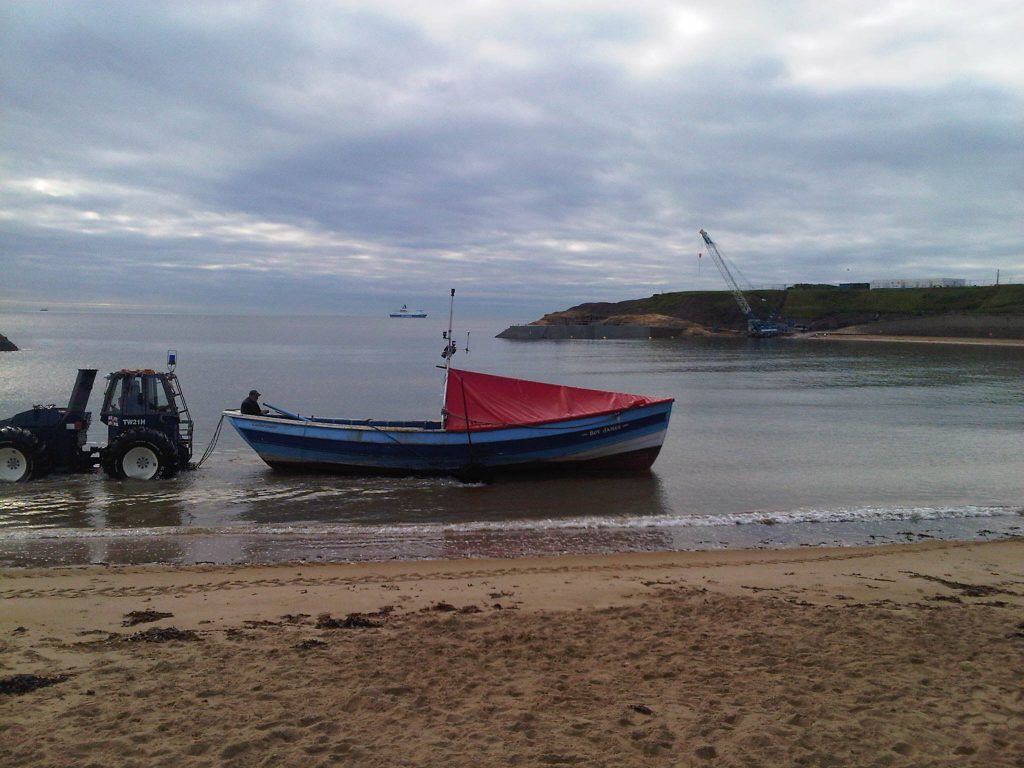13 June 2014
The UK has made clear that it will throw its weight behind opposition to the proposed EU ban on drift nets. Defra, following consultations with the devolved administrations, has made it clear in a consultative letter that it would be unacceptable to extinguish small scale drift net fisheries in the UK, many of which hold impeccable conservation credentials and which provide an important component in inshore fishermen's annual income. The UK approach is that where a specific problem of unacceptable bycatch is identified specific measures should be taken to address the issue.
“the
proposal does not readily relate to UK driftnet fisheries targeting herring,
bass, salmon and other species. These represent an important part of the
fishing year and livelihoods of relevant inshore fishermen and, most
significantly, do not have the serious by-catch or enforcement issues that the
Commission is trying to address.”
The
UK’s stance is important, as the likelihood of the Commission withdrawing the
proposal, despite the inadequate consultations which preceded it, are close to
zero. The signs are that this is another high profile initiative driven by
Commissioner Damakaki and that the Commission will remain inflexible. The focus
will therefore shift to the co-decision process and specifically the Council of
Ministers and the European Parliament. The UK along with France will form the
nucleus of an opposition pressing for amendments that would permit the survival
of our small-scale drift net fisheries.
The full text of the Defra consultative
letter reads as follows:
Dear all
European Commission
proposal to prohibit all EU driftnet fishing
As many of you will be aware,
the European Commission proposes a full prohibition on the taking on board or
use of any kind of driftnet in EU waters, as well as applying a more detailed
definition of driftnets with the aim of closing loopholes encountered with
enforcement of the current legislation (mainly in the Mediterranean). The
proposed prohibition is intended to apply from 1 January 2015, subject to
agreement with Member States and the European Parliament.
http://europa.eu/rapid/press-release_IP-14-563_en.htm (Commission proposal press release)
The Defra position will be
supportive of adequate measures to address the enforcement of the current
prohibition on driftnet fishing for highly migratory species where this has
been a problem, such as in the Mediterranean.
But Defra is very aware that
the Commission’s problem definition underpinning the proposal does not readily
relate to UK driftnet fisheries targeting herring, bass, salmon and other
species. These represent an important part of the fishing year and livelihoods
of relevant inshore fishermen and, most significantly, do not have the serious
by-catch or enforcement issues that the Commission is trying to address.
Our liaison with the Devolved Administrations indicates this view is
representative of a UK position.
Rather than the proposed
blanket EU measures, therefore, the UK negotiating position on this proposal
will be to seek alternatives such as the application of a risk-based regional
approach, particularly in waters around the UK – the North Sea, Channel, and
Western waters – an approach which will ensure that the right fisheries are
monitored and required to take appropriate mitigation action where
needed.
This approach is in line with
the existing requirements of the EU cetacean by-catch regulation (812/2004)
which targets controls on bottom set gill and entanglement nets in ICES Areas
IV (North Sea) and VII (western waters), which is where the related by-catch
has more typically been an issue in these areas, rather than driftnets,
particularly in consideration of the way driftnets are typically deployed and
attended in UK waters. We
consider a ban of any kind is inappropriate in the context of our UK driftnet
fisheries.
The next step is for
Member States to make representations in Council working group in Brussels –
where we anticipate
discussions will probably commence from July onwards.
In the meantime we would welcome any comments or views
on our intended approach in responding to this proposal as described above, or
any additional perspective you can offer to inform our position.
These should be returned to the above mailbox address – Marine.CommonFisheries@defra.gsi.gov.uk – for the attention of my colleague Iain Glasgow –
such views would be most helpful before the end of June.

